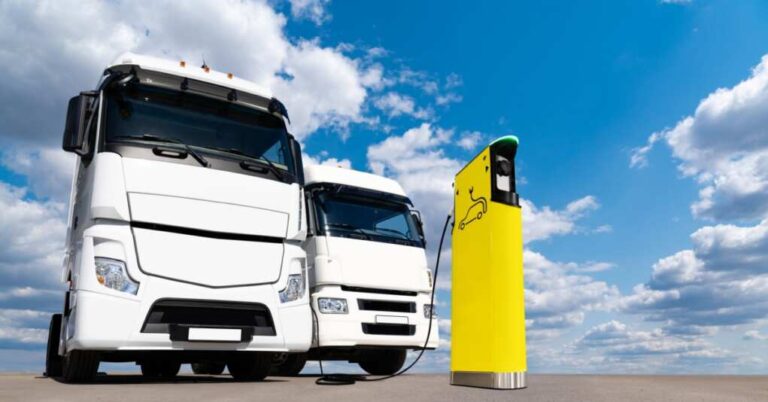
According to the insightful analysis by Ryder, a renowned transportation and logistics firm based in Florida, transitioning to electric vehicles (EVs) in today’s trucking market could lead to more disruptions in the already strained supply chains. Ryder’s expertise warns about the potential consequences of mandating EV trucks, citing significant cost increases and infrastructure challenges.
Ryder’s analysis reveals a stark reality: moving from internal combustion engine (ICE) trucks to EVs could significantly raise annual operational costs, contributing to economic inflation. For instance, converting a fleet of 25 mixed vehicles (including light, medium, and heavy-duty trucks) could surge by 56–67 percent, with heavy-duty trucks seeing a staggering 94–114 percent cost increase. These added costs directly impact transportation expenses, which influence the prices of goods in markets nationwide.
Now, let’s talk about President Biden’s ambitious push for electric trucks. It’s like he’s trying to solve a puzzle without all the pieces. Sure, EVs sound great on paper, but the real-world challenges are being brushed aside. The administration thinks a few billion dollars will magically make charging stations appear everywhere, solve all the technological hurdles, and create businesses that happily embrace these expensive changes overnight. Wishful thinking won’t power trucks or the economy!
Karen Jones, an executive at Ryder, emphasized that while there are scenarios where EV adoption makes sense, such applications are currently limited. Mandating broad EV adoption without adequate technological and infrastructural support could exacerbate supply chain disruptions and inflationary pressures. This sentiment echoes concerns from industry experts who argue that the rush to impose EV mandates overlooks the practical challenges businesses face.
One of the key challenges highlighted by Ryder is the need for a robust EV charging infrastructure. There is yet to be a comprehensive network in the United States where truck drivers can conveniently recharge their EV batteries during rest breaks. Estimates suggest that electrifying America’s commercial vehicle fleet would require a massive $1 trillion investment and the installation of almost 700,000 charging stations by 2030.
Robert Sanchez, Ryder’s CEO, noted that while the company is deploying EVs and charging infrastructure, widespread adoption remains elusive due to the technology’s limitations and inadequate infrastructure. This sentiment reflects a broader industry stance that emphasizes the need for a practical and gradual transition to EVs, taking into account operational realities and infrastructure readiness.
The debate over EV adoption has gained political traction, with the Biden administration proposing significant investments to promote zero-emission initiatives in the freight industry. However, critics argue that such mandates overlook the economic challenges and technological gaps that hinder seamless EV integration into existing fleets.
Furthermore, while concerns about the environmental impact of EV adoption are being raised, it’s essential to acknowledge the potential health benefits associated with transitioning to zero-emission trucks. Despite the upfront costs and energy demands of electrification, the potential for a cleaner and healthier environment is a hopeful prospect. Industry experts caution that transitioning the entire vehicle fleet to EVs could strain the country’s electricity grid, especially in regions like California, where energy supply issues are already evident.
While there is a push toward EV adoption for environmental and economic reasons, this transition’s practical challenges and costs must be addressed. Ryder’s analysis emphasizes the need for a sensible and balanced approach that considers technological readiness, infrastructure development, and economic feasibility. This approach ensures a smooth and sustainable shift toward electric trucks in the commercial sector, providing reassurance in the face of potential disruptions.
Speaking of disruptions, it’s ironic how proponents of EVs gloss over the fact that our electricity grid is already struggling. Adding hundreds of thousands of electric trucks to the mix without addressing these infrastructure limitations is like adding more weight to a sinking ship. Clean air sounds excellent, but not at the cost of blackouts and power shortages. Let’s fix what we have before charging headfirst into a power-hungry future!
